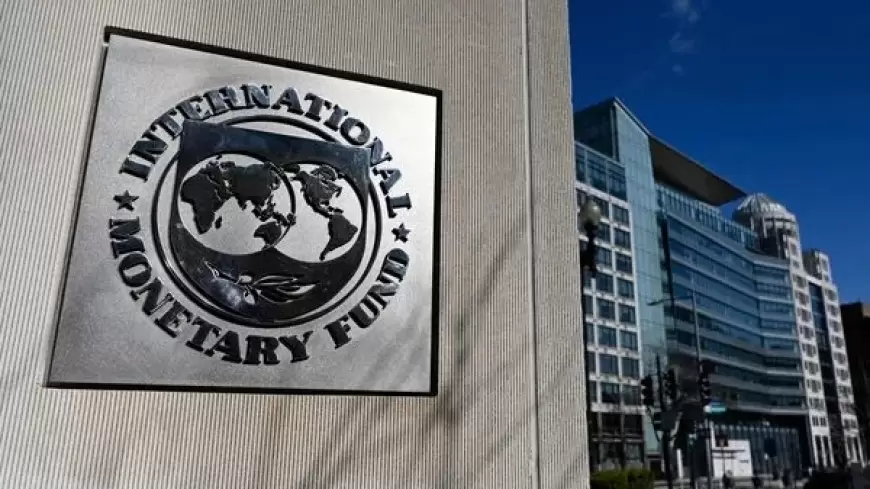IMF Forecasts Global Economic Growth Surge Amidst Warning Signals
IMF forecast adjustments for global economic growth and the cautionary signals amidst ongoing challenges. Stay informed!

The International Monetary Fund (IMF) has revised its predictions for global economic growth, pointing to a modest improvement largely driven by strong performances in the United States and select emerging markets. However, the organization also urges caution, citing ongoing concerns surrounding inflation and geopolitical tensions.
In its latest World Economic Outlook unveiled on Tuesday, the IMF forecasts a 3.2% expansion in global economic activity for the current year, marking a slight uptick from its previous estimate in January. The growth projection for 2025 remains consistent at 3.2%.
While the IMF's outlook suggests a more positive trajectory for the global economy, it underscores the challenges that lie ahead. High borrowing costs and the gradual withdrawal of fiscal support measures are dampening short-term growth prospects. Additionally, the IMF highlights persistent issues such as low productivity levels and lingering trade tensions, signaling potential obstacles to sustained economic recovery.
Pierre-Olivier Gourinchas, the IMF's chief economist, stresses the need for proactive measures to address these challenges effectively. He emphasizes the significance of tackling inflationary pressures and addressing global inequality as key priorities for policymakers.
The IMF's assessment acknowledges the progress made in averting the worst economic outcomes following the pandemic. However, it warns that significant hurdles remain, hindering the full realization of the global economy's potential in the years ahead.
Of particular concern is the ongoing battle against inflation, which poses risks for central banks worldwide. While some progress has been made in curbing inflation, the IMF urges caution against premature declarations of victory. Continued vigilance is essential to ensure stability in financial markets and prevent potential asset sell-offs.
Tobias Adrian, the IMF's official responsible for capital markets, raises alarms about the possibility of a resurgence in consumer price growth. He cautions against overreliance on central bank interventions, warning that overly optimistic expectations could trigger market instability and exacerbate existing financial vulnerabilities.
The IMF also draws attention to the diverging economic fortunes of low-income countries compared to the global average. These nations face unique challenges, including higher-than-expected inflation rates and the adverse impact of rising food and fuel prices.
Despite the overall positive outlook for global economic growth, the IMF warns of potential downside risks. Geopolitical tensions in regions such as Ukraine and the Middle East could escalate, fueling inflationary pressures and disrupting financial markets.
French Finance Minister Bruno Le Maire echoes these concerns, emphasizing the detrimental effects of geopolitical uncertainties on economic stability. He calls for concerted international efforts to address these challenges and promote sustainable global economic growth.
In conclusion, while the IMF's upward revision in global growth forecasts offers hope for recovery, it underscores the need for continued vigilance and proactive policymaking to navigate the uncertain economic landscape successfully.
Also Read: Global Financial Crisis: U.S. Treasury Calls for Help for Developing Countries































































